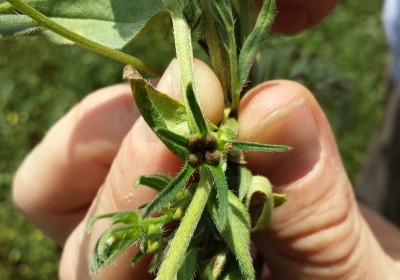EFSA lifts year-long block on Buglossoides oil novel food approval

EFSA’s approval of an application from Technology Crops International for Buglossoides oil from Buglossoides arvensis seeds followed a thumbs up from the UK’s Food Standards Agency (FSA) back in December 2013 – something which was later questioned by other member states.
As a result the European Commission asked EFSA to carry out a further safety assessment to look at the concerns, which included: the analysis of “undesirable substances”, the strength and relevance of the animal and human data submitted, the lack of toxicological information and whether the testing facilities were accredited and storage and processing impacted safety and composition.
The members states also questioned whether it had been appropriate to accept evidence of safety largely based on Echium oil derived from the seeds of Echium Plantagineum, a plant which was taxonomically related but nonetheless of a distinct species.
Further information submitted meant EFSA concluded in its 21-page report that “the novel food ingredient, refined Buglossoides oil, is safe under the proposed uses and use levels”.
25th June 2013: Technology Crops International submits novel food ingredient application for refined Buglossoides oil
December 2013: The UK’s Advisory Committee on Novel Foods and Processes (ACNFP) approves the ingredient as safe to market
6th January 2014: The UK forwards opinion onto the European Commission for its initial assessment
21st January 2014: Commission forwards assessment onto member states, several of which raise objections
5th February 2015: EFSA adopts positive opinion on safety (published 25th February)
The company was unable to respond to our request for comment in time for the publication of this article. However, in its original application the firm said the ingredient was intended for use in a wide range of applications including dairy products, breakfast cereals, food supplements, foods for weight control diets and foods for special medical purposes. It said it could appeal to people looking to increase their intake of long-chain omega-3 fatty acids but who were unwilling or unable to consume fish oils, for example vegetarians.
What is it?
The main fatty acids in the oil are alpha-linolenic acid (ALA), stearidonic acid (SDA) and linoleic acid, with smaller amounts of oleic acid, gamma-linolenic acid (GLA) and saturated fatty acids.
The ingredient was intended to be used in a range of foods and food supplements to provide about 200 mg of stearidonic acid per day.
EFSA said fatty acids are an energy source when digested.
Why was it blocked?
The plant itself contains active substances such as pyrrolizidine alkaloids, which have been linked to antigonadotropic activity meaning they affect hormones. EFSA said the refining process reduced these levels to below the maximum limits set in the EU.
Another concern was the method used to analyse polycyclic aromatic hydrocarbons (PAHs), however the company submitted further information confirming that the oil came within safe limits for this carcinogen.
On these points EFSA concluded: “The proposed specifications for pyrrolizidine alkaloids and erucic acid, which are undesirable substances, do not give rise to concern in view of the proposed conditions of use. The available information does not give concerns as regards other undesirable substances in the novel food ingredient.”















